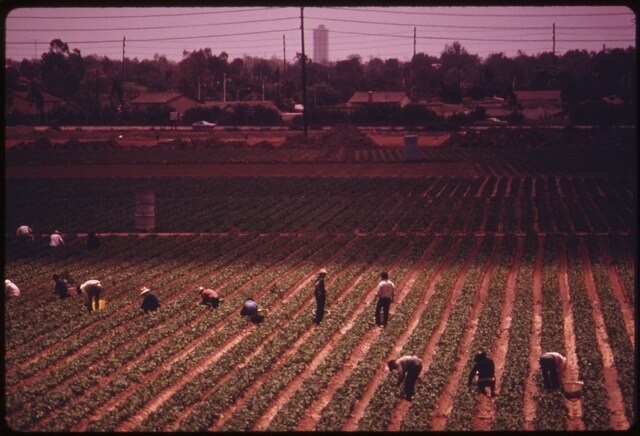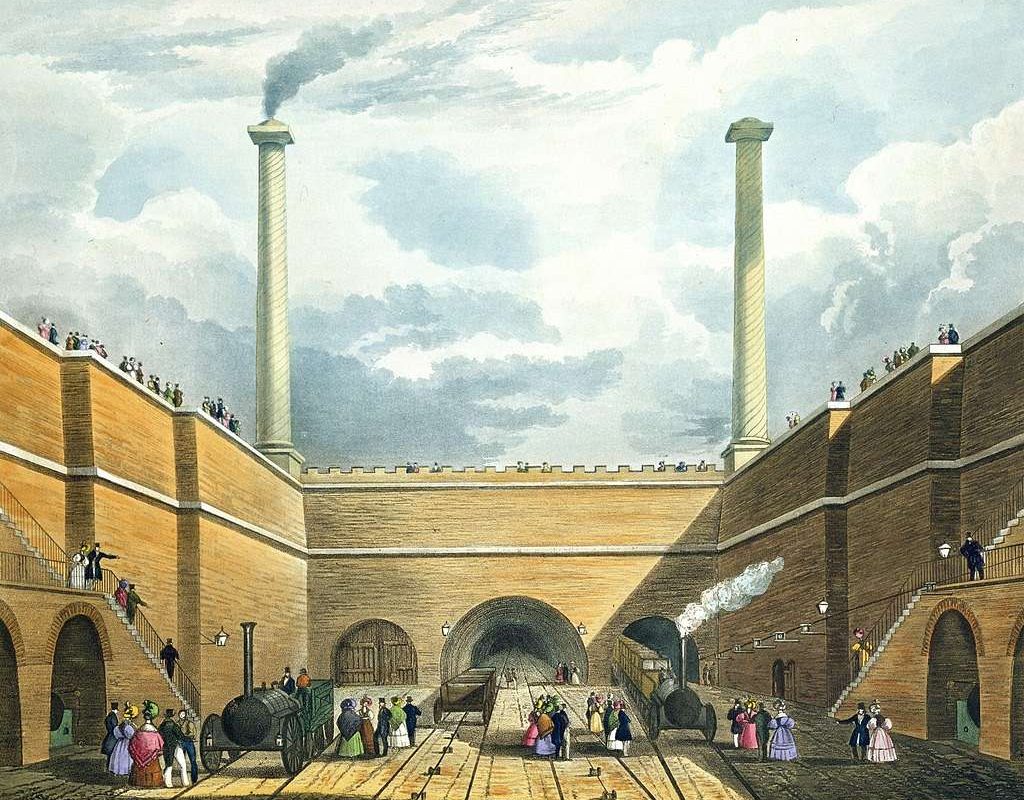It was slightly odd to see my introductory, half-hour talk on whether the working class of the “global north” benefit from imperialism subjected to an extensive written rebuttal — as if it were a learned treatise on political economy. Odder still is that the author, Vinit R, fills in some of the blanks by “guessing” at my “historic motivations”.
As I’ve long acknowledged, my own strand of Marxist political economy has a way to go in theorising value on the global terrain. I am no stranger to challenges to the kind of position I advanced. There are some sophisticated versions of dependency theory, engagement with which benefits us all. Sadly, much of R’s contribution did not fit into this category. I found it confusing and illogical, but I will try to respond as best I can.
A brief note on terminology is perhaps helpful as a preliminary. R criticises me for discussing Saudi Arabia and similar states under the rubric of “global south”. Here I’ve put both that term and “global north” in scare-quotes because, as I thought I made clear, they reduce the complexity of global capitalism to homogenous blocs. Unfortunately, the framework of dependency theory, with its schema of “core”, “periphery”, “semi-periphery”, or the simplistic binary of “imperialist” vs. “dominated” countries, requires we resort to such terminology in mounting a critique. I’m fully aware that Saudi Arabia is not a poor country, for Saudi citizens at least; that was my point. For what it’s worth, back in 1975, Immanuel Wallerstein did include both Saudi Arabia and Iran in his list of “semi-peripheral” states. This helps demonstrate the limits of such frameworks.
Imperialism
Large portions of R’s response are devoted to explaining how capitalists in the “global north” might benefit from imperialism. This is hardly contentious — it is implicit in the whole theory of imperialism, going back to Vladimir Lenin, Nikolai Bukharin and many other Marxists who contributed to its foundation.
More contentious is the way we theorise imperialism. I don’t know when R thinks I argued that “Marxian analyses of the utility of colonialism were fringe tankie opinions.” I’m not even quite sure what he means. I was clear on the horrific impact of colonialism. Formal colonies are, of course, rarer today than they once were; however, I don’t think imperialism is identical to colonialism. Following authors such as Alex Callinicos, I instead view imperialism as the intersection of two forms of capitalist competition: economic and geopolitical (see for example his 2009 work Imperialism and Global Political Economy). One of the problems in Marxist discussions of imperialism is a widespread tendency to reduce imperialism to mere economic antagonism between states or blocs.
The contemporary system takes the form of a hierarchy of capitalist states engaged in these two intersecting forms of competition. This includes the major global power, the USA, and below it other imperialisms such as Britain, Russia, China or France. A little lower comes a range of regional imperialist powers, sometimes called sub-imperialisms, that seek to play an imperialist role in their own backyard — Saudi Arabia would be a good example, so too would Iran or Turkey. Finally, there are states that lack this capacity, but would probably wish to acquire it and join the ranks of powers higher up the hierarchy.
R seems to accept Rosa Luxemburg’s alternative conceptualisation, developed in The Accumulation of Capital, in which imperialism helps provide an outlet for capital, offsetting regular crises driven by deficient demand. I don’t agree with Luxemburg’s theory of crisis and hence have differences with her theorisation of imperialism. Many Marxists, including those otherwise sympathetic to Luxemburg — such as Bukharin, Tony Cliff, Chris Harman or Alex Callinicos — have produced wise and scholarly criticisms of her approach. Rather than repeating their points, I’ll leave readers to consult them for themselves.
Chinese exceptionalism
China features prominently in these debates. I have no idea why R finds my claim that China’s development is exceptional to be “iffy”. The growth of Chinese industry is without parallel in the modern world. True, other states will try to follow a similar path or already emulate elements of China’s model. Also true, China has learnt much from other East Asian states and indeed the failure of “shock therapy” in the former Soviet Union. But to go from contributing 2% to global GDP to almost 20% in four decades is exceptional. India, starting from roughly the same level, has reached about 8% while Brazil’s share has barely changed.
Contrary to what R suggests, I don’t have any problem explaining China’s growth. After all, I do not share the rigid conceptions of dependency theory, which struggle to offer explanations for the Chinese breakthrough. Within my political tradition, China is regarded as a state-capitalist economy in the years immediately following 1949. As this model ran up against its limits, from the 1970s, China’s rulers undertook a series of reforms, both restructuring the state-owned sector and driving vast rural populations into cities, ripe for exploitation. This allowed the country’s ruling class to offer China as a platform for the manufacturing activities of foreign capital — first from elsewhere in Asia, then on a global scale. The Chinese ruling class oversaw the development of a hybrid economy, blending state and private capital through which they could industrialise, eventually allowing them to establish a significant internal market and to try to rise up the “value chain”, successfully in some areas. This comes with all the growing contradictions, crises, class tensions and conflicts a good Marxist would anticipate. (Adrian Budd’s 2024 work, China: Rise, Repression and Resistance offers a fuller account.)
On this basis, China has become a major centre of capital accumulation — and is developing the military and political clout one would expect of a major imperialist power. This is entirely consistent with my approach, which, as noted, sees imperialism as a hierarchical arrangement of interlocking capitalist powers, each aspiring to improve their position in the global order — often failing, sometimes succeeding. China’s success comes because it had, partially based on earlier state-capitalist development, sufficient resources and infrastructure, as well as a huge population of potential wage labourers, as well as a powerful state-capitalist bureaucracy who chose an effective path (if the goal was the rapid accumulation of capital), and an auspicious moment in global political economy in which multinationals sought to build extensive global production networks extending, selectively, into areas of the “global south”.
This type of explanation is superior to one limiting itself to explaining the movement of capital due to rising productivity and wages in the “global north” depressing profits. Such explanations beg the question: why China? As I suggest there are concrete reasons why China, not some other country, was able to make this breakthrough. As it has done so, it has started to share some benefits of the “clustering” effect of capital I described in my talk in relation to the “global north”.
Rents, profits and capitalists
R’s central argument about flows of wealth into the “global north” lies in a series of passages in a section entitled “capital” that I found largely incomprehensible. He makes an odd assortment of points. We are told that “highly skilled workers” in countries such as Britain “generate massive profits”. However, “some” (how many…?) workers in the “tertiary sector” aren’t very productive because it is hard to automate serving coffee in cafés or school teaching. And there aren’t many people working in manufacturing in Britain (who knew…).
I think the idea here is that not much wealth is being generated internally by the British economy, so it must be coming from somewhere else. If so, I disagree. Much of the British workforce is productive in the Marxist sense. Marx himself was clear that service-sector work undertaken by capital for profit generated new value, just like labour in manufacturing. (Incidentally, it is unclear why people treat cafés as some sort of pre-industrial zone untouched by automation, economies of scale, productivity drives, etc — have they never heard of Starbucks?) High levels of historical investment, along with the development of infrastructure and institutions such as those associated with the welfare state, made “northern” industries highly productive compared to their equivalents in the “south”. Like similar states, Britain is able, largely based on its internal generation of new value, to support a relatively well-off workforce and a relatively powerful capitalist class (even if Britain is a laggard when it comes to investment compared to its peers).
R is entitled to disagree, but then he needs to explain precisely how value arrives in the hands of the British capitalist class. We are told that the third volume of Capital sorts all this out because rent-like flows are used to channel surplus value from the “global south” to the “global north”. Maybe so, but how much and through what process? R doesn’t offer data but does suggest two specific mechanisms.
One is “financial capital” operating through organisations like the International Monetary Fund (IMF), in order to “tether the productive forces of the Global South to Northern credit lines”, destroying “state capacity” and forcing through “endless reforms”, in R’s words. It is indisputable that IMF structural adjustment programmes, imposed as a condition for debt bailouts, have done colossal damage, devastating many “southern” economies. Certainly, financial institutions in the “global north” seek to appropriate flows of surplus value from states and from capital in the “global south” in the form of interest payments. They also seek to appropriate flows of surplus value from states and capital in the “global north”. So, some empirical data might be useful here. How important are the specific flows from the “north” or “south”?
According to a study by UNCTAD, net transfer of financial resources from 134 “developing” countries to “developed” countries in 2017 was around $500 billion, a significant amount, but not decisive in explaining the gross inequalities that have developed and persist. It’s also worth noting in passing that among the very poorest countries, a fairly significant stream of debt payments goes to China. Moreover, the amount is far from constant in recent history. It has risen very considerably since the 1990s, and fallen from extremes which were reached in 2012, begging the question of how decisive a structural factor this is in explaining global inequality. If the wealth of the “global north” depended primarily on these relatively fickle flows, wouldn’t we expect riots on the streets when they slow?
Not only does this process supposedly play a decisive role in the global economy, it also, according to R, drove the creation of a domestic bourgeoisie in the “global south”. The resulting capitalists are dismissed as a tiny “comprador” bourgeoisie, profiting from exploitation but “shuffling” even bigger profits to “northern” capitalists. The “Bangladeshi mill-owner” is presented as a figure representing the entire Bangladeshi and wider “southern” bourgeoisie. The imbalances of power in these global textile value chains are well known. However, there are also myriad businesses that mobilise capital and exploit workers to produce goods and services aimed at the domestic market. Are these all funded by foreign loans? Are most of them? Does the bulk of the surplus value extracted from workers simply end up in interest payments? If so, why is it so limited in relation to the roughly $45,000 billion in GDP generated in the “emerging market and developing economies” of the “global south”? Such questions go unanswered.
We might also question when a “comprador” bourgeoisie becomes a “real” bourgeoisie. Chinese capitalists (and state capitalists) collaborated extensively with multinationals to help generate the country’s economic expansion. R mentions a “Chinese bourgeoisie who drew massive profits from the exploitation of Chinese workers, but also drove colossal economic growth for decades, effectively turning China into a microcosm of capitalism itself”. They don’t sound like a comprador bourgeoisie, although many were as much implicated in global value chains as the Bangladeshi mill-owner, although of a somewhat different structure. Are they just like the capitalists in the “north”, benefiting from the workings of imperialism and dependency? None of this is clear.
The other mechanism identified in channelling wealth “northwards” involves intellectual property. There is no debate about the ethics of pharmaceutical giants and states in the “global north” attempting to deny people in the “south” access to patented drugs. However, I don’t shed many tears for the wealthy and powerful Indian capitalists running the country’s powerful and lucrative pharma industry. Are they compradors too? The net worth of Dilip Shanghvi, founder of Sun Pharmaceuticals, is estimated at over $25 billion. I think we’re probably safe in regarding him as a capitalist pure and simple.
The wider issue of how best to integrate intellectual property into Marxist political economy is complex. There may, for instance, be rent-like aspects to Google’s near-monopoly on web-searches in many countries and its related capacity to sell advertising. However, I would venture that the mobilisation of capital and labour on a vast scale — far greater than the various auto manufacturing giants — also has something to do with its revenues.
The overarching problem is that there is little effort to empirically substantiate R’s claims that rent-like flows of income play a decisive role in explaining global inequality or to specify precise mechanisms for this. Sadly, vibes are not enough.
Labour and exploitation
The central problem I have with R’s argument, though, is not the claim that money might flow across borders to the advantage of “northern” capital, something I never had any issue with in the first place. Rather it is his claim that dependency theory does not replace “class” with “nation”, that it does not envisage exploitation as taking place between nations/regions. Here R makes a peculiar claim: “Yes, exploitation and expropriation do exist in the Global North. But the former is often offset through the receipt of wages higher than the surplus value generated by the worker.”
The word “often” is doing a lot of work here. How often? Is this a minority condition or the norm for workers in countries such as Britain? If it is just a minority of British workers, the intellectual edifice R is trying to construct quickly reduces itself to the tired old “labour aristocracy” argument. I won’t say much about this because the criticisms made by other authors are, in my opinion, devastating. (See, for instance, Kevin Corr and Andy Brown’s, “The Labour Aristocracy and the Roots of Reformism” in International Socialism 59; or Charles Post’s, “Exploring Working-Class Consciousness: A Critique of the Theory of the ‘Labour-Aristocracy’” in Historical Materialism 18:4.)
If “often” here means “most” British workers, it is hard to see how this does not replace class with nation. Why? Well, if workers receive wages covering not just the cost of reproducing their labour-power, but also (more than) the surplus value they generate, in what sense are they being “exploited”? The capitalist class would be making a negative profit from their “exploitation” of this “northern” labour. This is precisely a harmonious union of capital and labour, reconciled on the national terrain! As both capital and labour are receiving more than their share of surplus value there is hardly much basis for class conflict between them. Their shared national interest is indeed to “exploit” the rest of the world, to pump unremunerated value out of the “global south”.
Indeed, here I expected to see R link this to the extraction of value from the “global south”, which would at least be logically consistent. Instead, we get something much weirder. The burden “falls squarely onto a range of insecure populations: such as migrants, held captive to migration regimes that kill their capacity to organise, and allow capital to treat them as entirely disposable workers through the very enforceable threat of deportation”. These groups do not suffer exploitation but “expropriation”, which I take to mean that their property is taken from them.
It is hard to know what to make of this argument. The sole example given is migrant workers. A charitable interpretation would be that migrants in countries such as Britain are an extension of “global south” workers into the “global north”, but I don’t want to put words into R’s mouth. If he means migrants in countries such as Britain, where almost one in five workers is foreign born, are responsible for most of the wealth being generated here, that’s clearly implausible. This is not to minimise the oppression of migrants, many of whom labour in horrifying conditions for miserable wages — issues over which many of us have fought, alongside migrant workers (who don’t seem to have got the memo about their capacity to organise being “killed”).
However, the median income of foreign-born workers in Britain is marginally higher than that of British-born workers. Undoubtedly, this excludes pools of undocumented migrants or those engaged in illegal forms of work — but those activities tend to be concentrated in “sweated” industries that are not especially high value producing, so it is hard to see how they could form the core explanation for the relative wealth of “northern” workers. Similarly, foreign-born workers may experience higher levels of unemployment, but, by definition, this would not be a source of surplus value for British-born workers.
Whichever way one looks at this, it is hard to make sense of the argument. Impoverished migrants are “expropriated”, somehow generating large sums of money. This money is mysteriously passed by capitalists to other groups of workers through their wages, forming at least as much as the entire surplus value they generate. Meanwhile, various flows of income from a “southern” comprador bourgeoisie helps enrich “northern” capitalists.
Politics
Finally, what are the politics of all this? R makes clear that, in his view, workers in the “global north” have an interest in maintaining the impoverishment of the “global south” and striking deals with their own ruling class. “Capitalism is not going to be overthrown by British workers.” The “progression” towards figures such as Donald Trump or Sahra Wagenknecht is “inevitable”. Why bother to fight at all?
There are some comments appended about the horrors inflicted on the “global south” being imposed on “northern citizens” due to a “profitability crisis”, involving quantitative easing or privatisation (which R doesn’t seem to realise has been going on for over four decades in countries such as Britain). This makes it hard to understand whether, for him, the funnelling of surplus value into the pockets of those of us in the “north” results from specific features of contemporary capitalism or a more structural imperative within capitalism or imperialism. Fortunately, it doesn’t really matter, because, we are told, any radicalism will likely collapse back into “labour-capital compromise… at the cost of the Global South”.
It is precisely against such views — and to defend the best traditions of proletarian internationalism, in which the global working class share an interest in fighting capitalism and imperialism — that I directed my comments. Rr’s confused and confusing response convinces me that I was right to do so.




